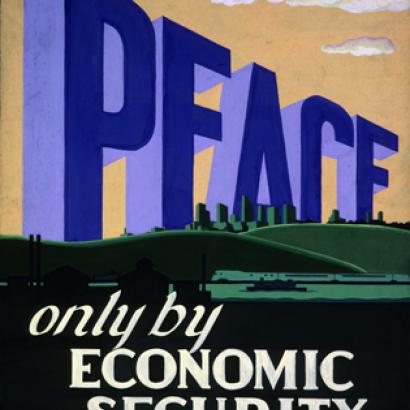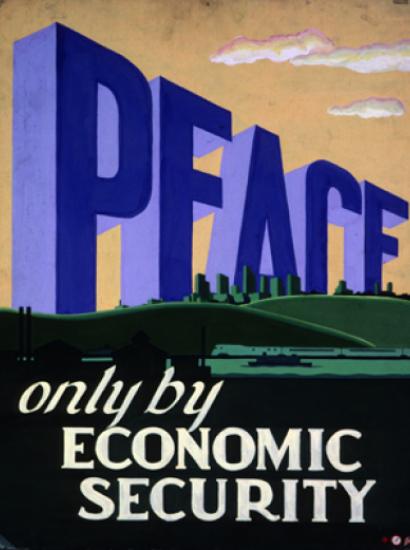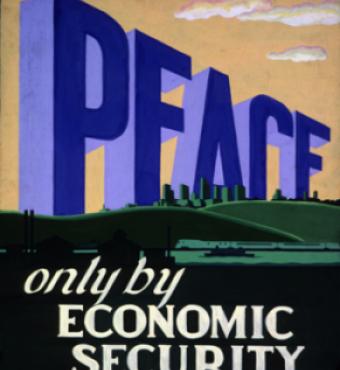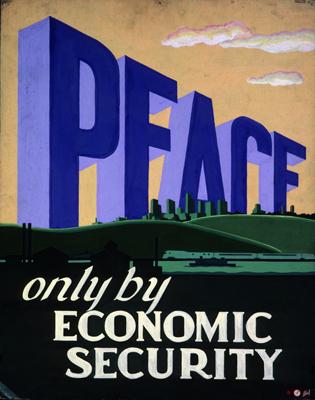- History

George Kennan wrote that Americans in 1905 had not imagined threats from abroad, but that by 1950 they could hardly think of anything else. In the intervening half century, U.S. foreign policy had adopted the maxim that America’s security is inseparable from the rest of the world’s peace and progress. Accordingly, Woodrow Wilson’s Great War, his settlement thereof, and subsequent American-led treaties for global peace and arms control sought to “make the world safe for democracy.” Franklin Roosevelt had made war to rid the world of “ancient evils, ancient ills” and invented the United Nations Organization to police the result. Three generations later, after more treaties, trillions of dollars, and wars in pursuit of world order and global security, we are less secure than ever—massive increases in all manner of power notwithstanding. Now, as Russia and China expand, as the rest of the world integrates nuclear weapons into ordinary military operations even as the U.S. government tries to disinvent them, the Muslim world’s warriors kill Americans while inspiring others among us to murder their neighbors.
In short, a century’s trials have shown the consequences of departing from the classic statesmanship of presidents from Washington to Theodore Roosevelt—minding America’s business and maintaining a surplus of power over commitments. They illustrate the need for decisiveness in minding America’s own business, and for refraining from interfering in others’ affairs while brooking no interference in ours. Then, America’s guiding strategic principle was: “what is nearest is dearest.” Jealous balancing of ends and means was its practical guide. Returning to this, the opposite of retrenchment, would mean channeling Ronald Reagan, the only president since TR who approached confrontations in terms of “we win, they lose.”
Distinguishing among what is America’s vital business—to be minded with all our might—what is peripheral, and what is others’ business, has ever been statesmanship’s primordial responsibility. Such distinctions are not arbitrary. Nor are they to be made by executive orders, agreements, telephone calls, or “understandings.” As matters of life and death, they are the American people’s business, to be debated and voted.
To regain respect for its words, the U.S. government must prepare to do something that it has not done since 1945—namely, win a war. Peacefully to delimit spheres of influence vis-à-vis any power requires the capacity to win wars. This means guarding American lives by prioritizing firepower and defending America’s satellite network. To be taken seriously by nuclear powers, which have plans for using nuclear weapons in military operations, it means, above all, protecting Americans against ballistic missiles—renouncing the half-century-old bipartisan consensus that peace requires keeping Americans vulnerable.
We can be grateful that today’s geopolitical challenges do not amount to the threat which the Soviet Union had posed. Russia’s and China’s imperialisms are of the traditional kind, expanding to the limits of resistance. Defining spheres of influence with such empires by deciding the extent of our own interests vis-à-vis theirs is the stuff of traditional statecraft. To exercise it, the U.S government must define what America’s traditional objective of preventing a single power from dominating all of Europe, and another from dominating East Asia, means in today’s circumstances. That is very much our business. Then, it must communicate that understanding to Russia, China, and their neighbors—with deeds more than with words.
American declarations and “trip wire” troops cannot stop Russia’s military incursions into areas with substantial Russian populations, and hence from overawing ever more of its “near abroad.” Nor does anyone imagine the U.S, or even the Eastern European governments involved, making war on Russia to stop it. By the same token, Russia is not going to bog itself down militarily trying to conquer and hold western Ukraine or the Baltic states, never mind Poland. The U.S. government could define America’s and Russia’s respective spheres of influence by arming these countries substantially, dispensing with inflammatory words and the unserious economic sanctions currently on Russia, but obviously preparing the devastating kind should she bid for an hegemony that threatens America.
China’s appropriation of the South China Sea, accomplished by its masterly construction of military outposts on built-up reefs, cannot be reversed by “freedom of navigation patrols.” These are the sad equivalents of “trip wire” troops. Breaking China’s shore-based control of the Western Pacific is beyond America’s current military and political capacity, especially given Chinese missiles’ free ride to local and U.S. targets. Mitigating this threat would have to begin with making our Pacific bases—and America itself—invulnerable to Chinese missiles. Achieving a new, favorable, balance of military power in the region might require fortifying Taiwan. But nothing short of that would make it possible to establish a peaceful, long-term delimitation of China’s influence.
Islamism’s threat stems from the Muslim world’s civilizational collapse and internecine warfare, as well as from our foreign policy establishment’s attempts to alleviate its effects and steer its course. Having learned that this is counterproductive, America’s strategic choice should be to leave that world’s concerns to its denizens, minimizing contact with them. Sadly, some potentates and even entire communities incite and celebrate killing Americans. Our business, our safety, lies in killing as many people as are associated in any way with killing Americans, repaying incitement with death, devastation, and economic privation, so that terrorism will become an occasion for communal bewailing rather than celebration.















